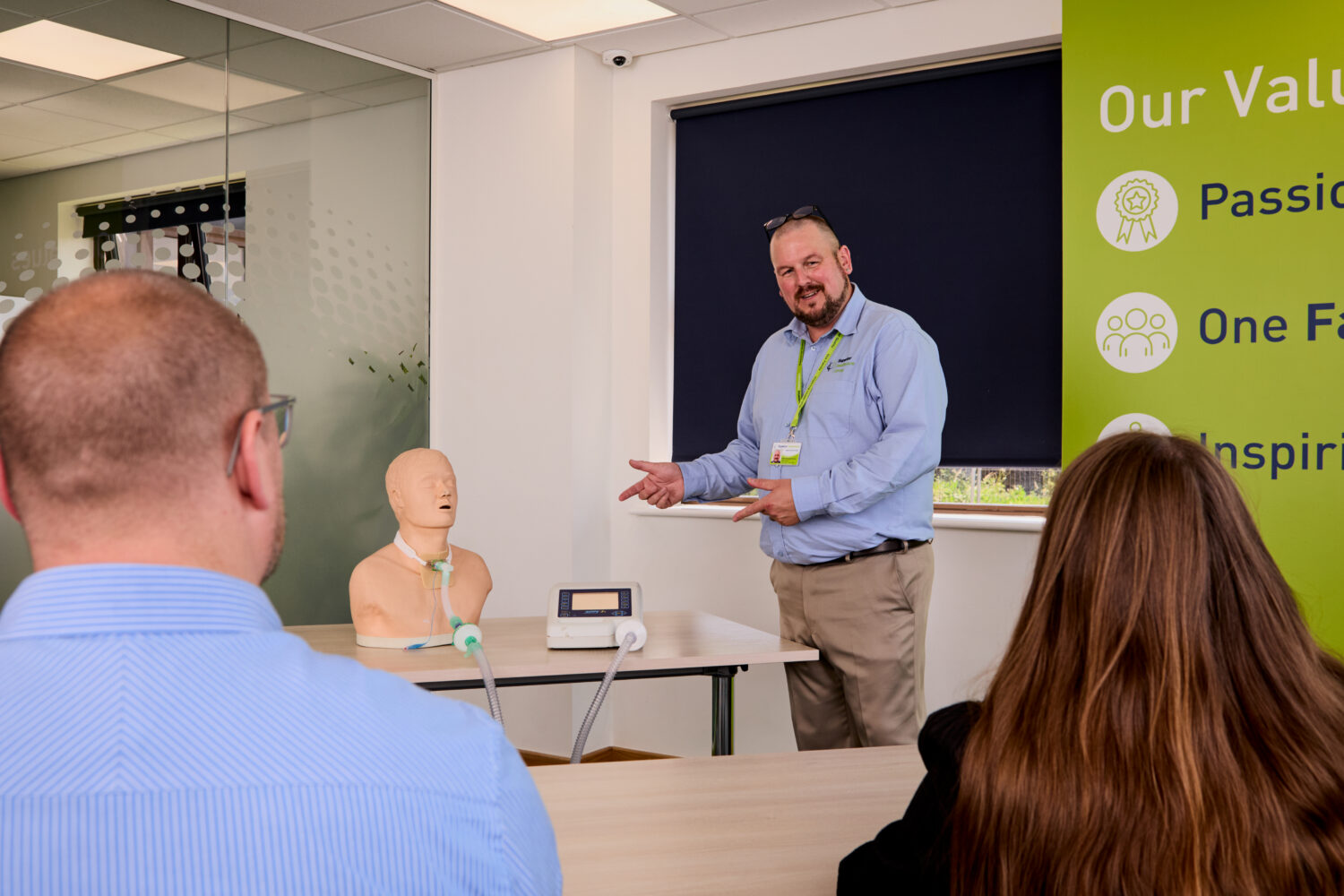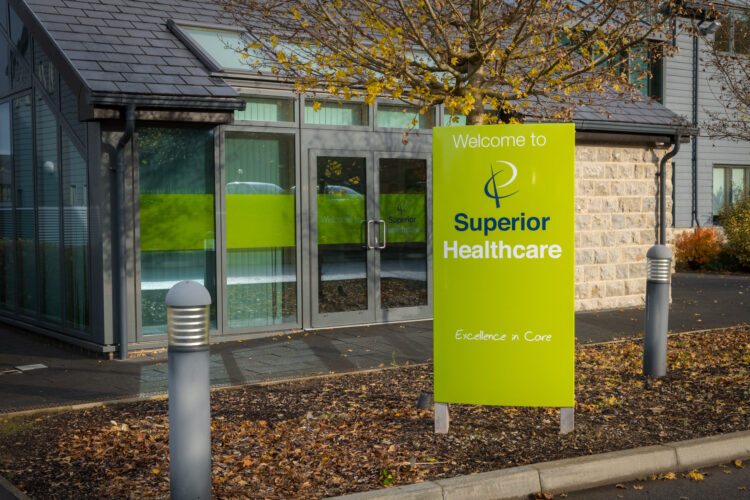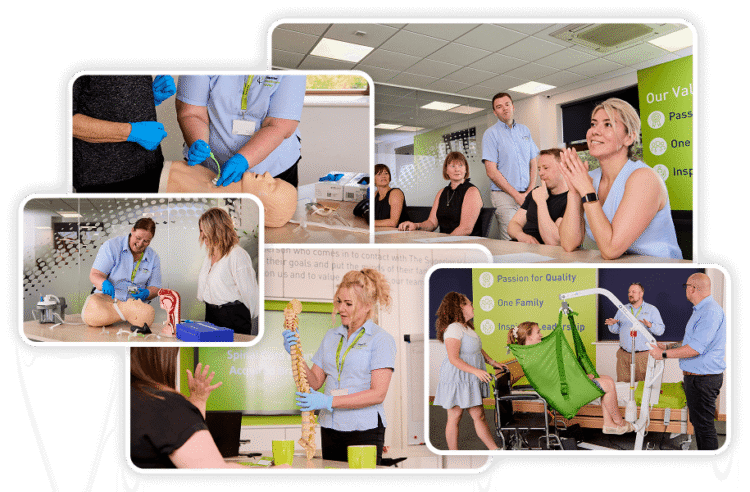Ventilation and Cough Assist Awareness Training is a half-day interactive course that is ideal for registered nurses, support workers, healthcare assistants, and community carers who are involved in delivering complex care and wish to build their knowledge and confidence in supporting clients requiring ventilatory support and cough assist interventions.
View upcoming availability

Designed for those with limited experience in this area, the Ventilation and Cough Assist Awareness training course offers a clear understanding of both invasive and non-invasive ventilation, supported by practical, simulated learning to reflect real-world scenarios encountered in community settings.

Learners on Ventilation and Cough Assist Awareness will leave the training course with enhanced skills that support improved client outcomes, greater safety, and professional confidence when delivering complex respiratory care.
The Ventilation and Cough Assist Awareness training course is mapped to national guidance and delivered by experienced healthcare professionals in a safe, supportive learning environment.
By the end of this training course, you’ll be able to:
Make yourself comfortable and learn from the best at one of our state-of-the-art locations in Kent, Essex, Hampshire, and Sussex.
Find out more

Superior Healthcare provides ventilation training to care services, schools, nurseries, nursing homes, private hospitals, residential homes, hospices, and more.
We deliver training to individuals, including nurse managers, registered nurses, paramedics, senior carers, healthcare assistants, and support workers, who wish to refresh their ventilation skills and improve clinical knowledge.
This CPD-accredited ventilation training can also be utilised to meet nurse revalidation requirements.
Additionally, all our care and nursing teams receive paid ventilation training upon joining and annually as part of their refresher training.
